Looking for private housing for your first, second, third year, or beyond? We’re here to guide you through every step - from exploring your options and finding housemates, to understanding tenancy agreements and everything in between.
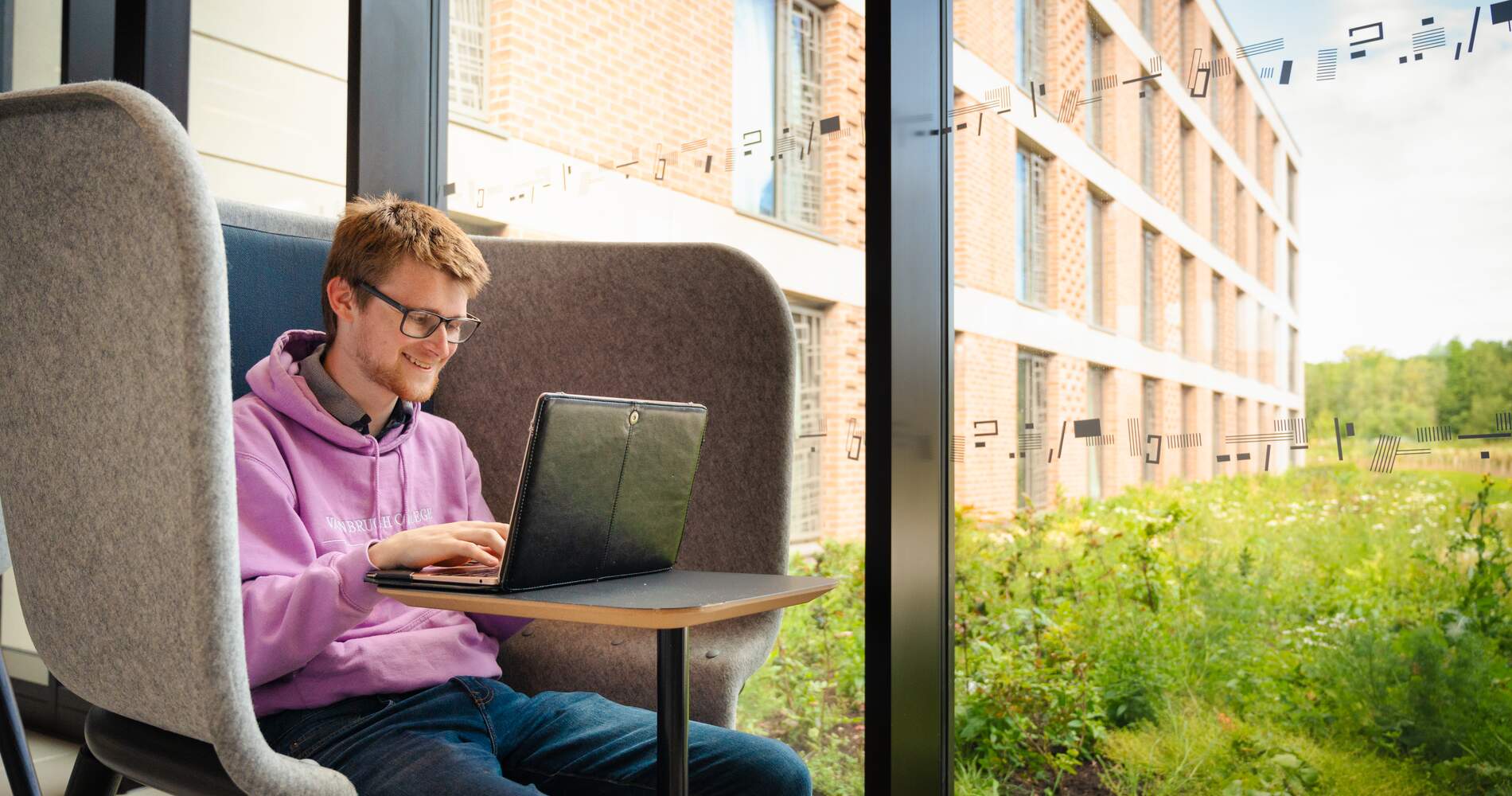
Finding private sector accommodation
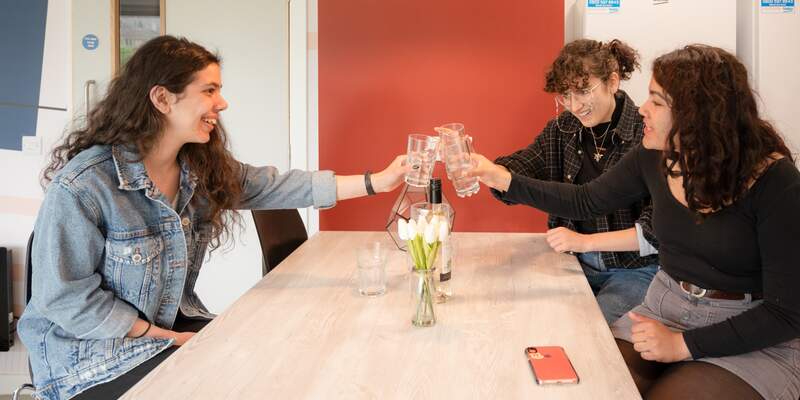
Looking for a flatmate for the next academic year, or have a spare room you'd like to fill?

Have your contract checked in the Baroness Hale Law School Clinic between 2pm and 4pm.

Discuss any private housing matters with our Student Housing Adviser between 2pm and 4pm.

Have your contract checked in the Baroness Hale Law School Clinic between 2pm and 4pm.
You'll need to consider
- Who you want to live with
- What type of property you want to live in
- What your budget is
- What facilities the property has - are bills included?
- If you have or need a deposit
- If you will need a guarantor

What are my options?
Explore purpose-built student accommodation
There are a large range of purpose-built student accommodation blocks in the city of York, all with a range of facilities to suit different budgets. This type of accommodation feels more like student accommodation that you would find on campus, but located within the city. This option can be good if you are looking for accommodation alone, in a couple, or in a small group.
Prices displayed are for the 2026/27 academic year and are subject to change; these may also change for your year of entry.
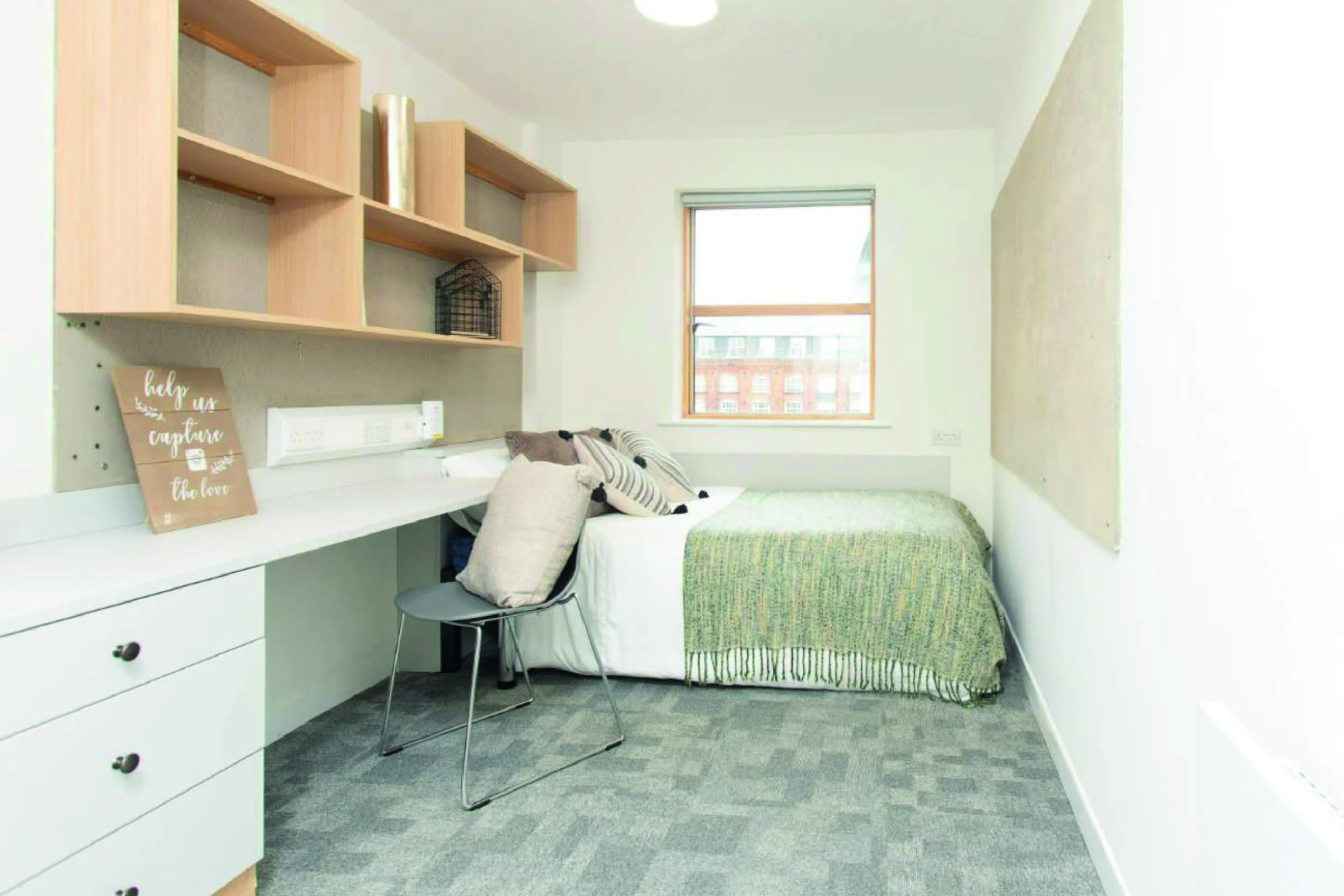
Twins from £185 pp p.w.
Studios from £255 p.w.
Undergraduates
Postgraduates
Accessible rooms
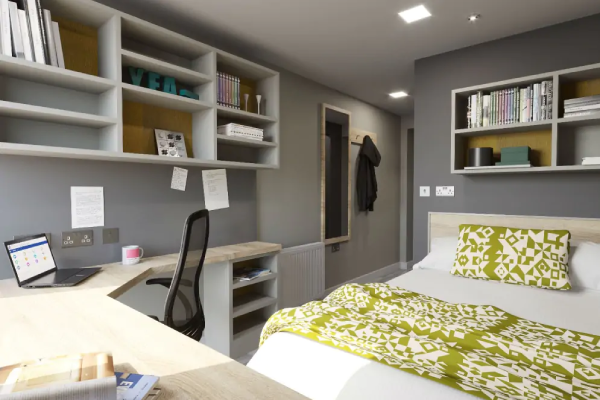

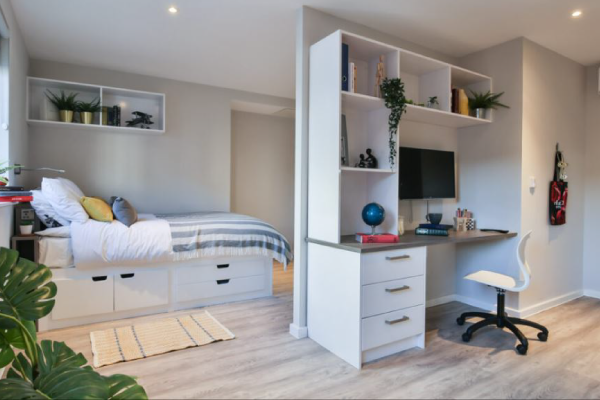
Studios from £242 p.w.
Undergraduates
Postgraduates
Couples
Accessible rooms
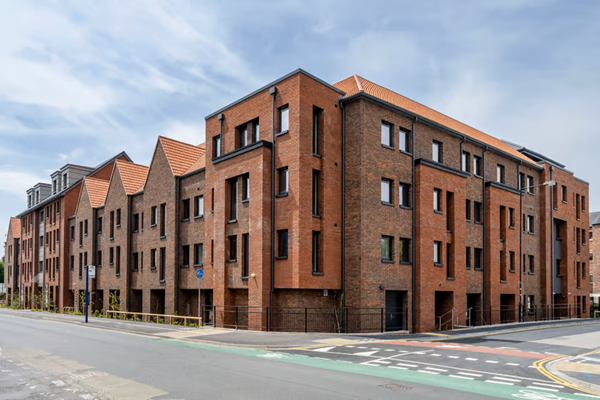
Studios from £283 p.w.
Undergraduates
Postgraduates
Couples
Accessible rooms
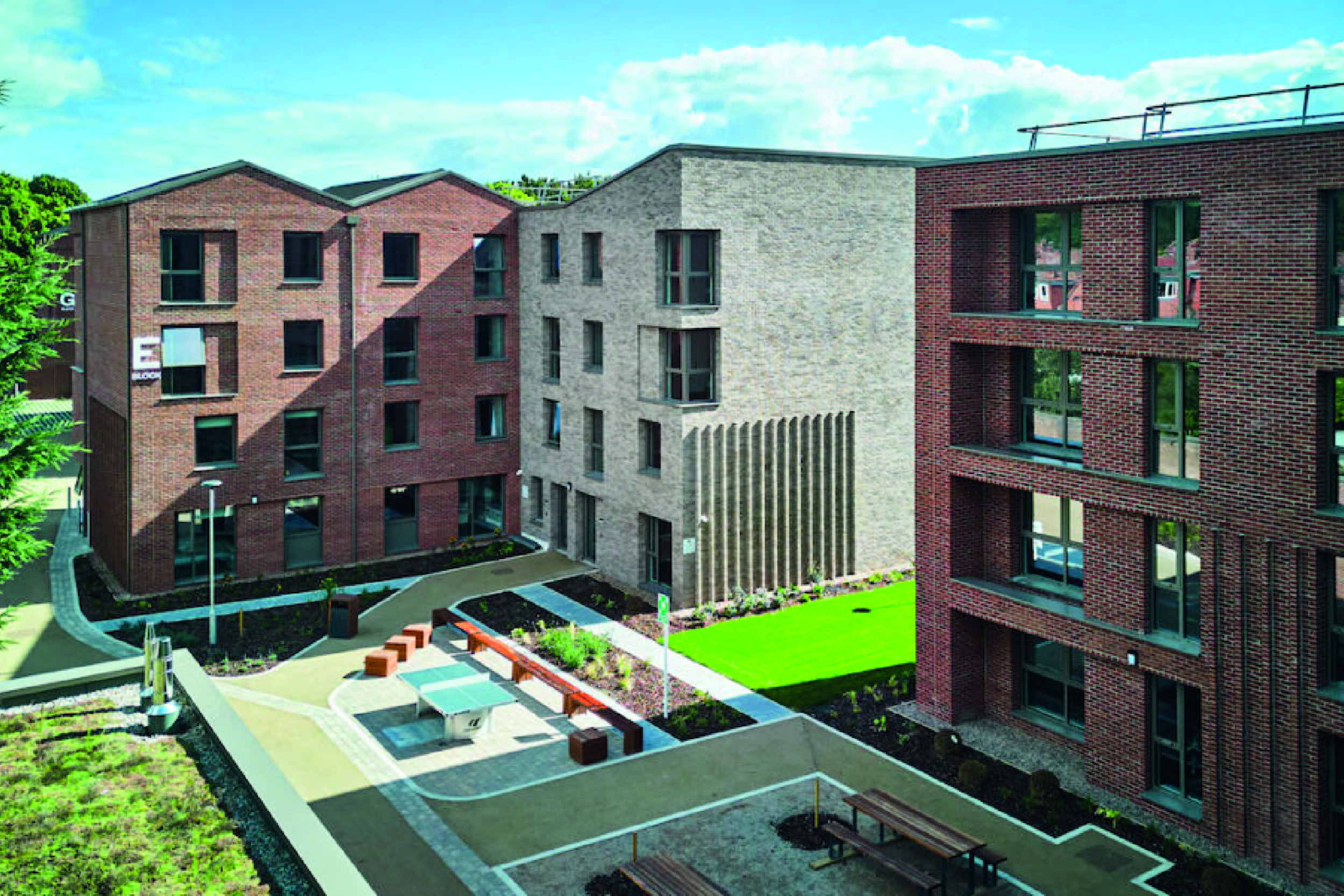
Shared from £189 p.w.
Studios from £201 p.w.
Undergraduates
Postgraduates
Couples
44 week tenancies
Semester tenancies
Studios from £272 p.w.
Undergraduates
Postgraduates
Couples
Accessible rooms
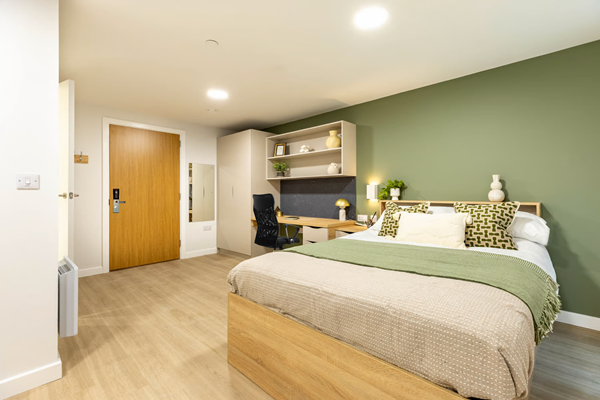
Student voices
Hermione tells us all about her experience living in Student Castle, a purpose built student accommodation in the city centre, in her second year at York. Please note room types, catering options and social activities shown or talked about in this video may change for your year of entry. Check the relevant website or web pages for the most up to date information.
In this video, Kai (she/her), a second-year Business of the Creative Industries student, shares her experience moving from on-campus accommodation at Anne Lister College to a private shared house in York city centre.
Kai covers: how second-year housing works, how to find housemates, popular student areas in York, transport links to campus, tips on choosing a house, splitting bills, and what to look for in a rental and useful resources from the University of York. Whether you're planning ahead or just getting started, this video will help you feel more confident about your next move.
Student letting agents
Houses in Multiple Occupation (HMOs) presents a different option for private accommodation. They typically involve renting a private bedroom within a shared house. Privately owned and managed by landlords or student letting agents, HMOs accommodate multiple tenants, each having their own space and sharing communal areas like kitchens and bathrooms. This is a great option for students wanting to book as a group.
- Adam Bennet
- Egdell Properties
- Hardcastle Properties
- IG Property
- Kendall Bailey
- Reeds Rains
- Sinclair
- Quantum
- 2Let
This list is not exhaustive. The University does not endorse any particular letting agent, and contracts are agreed and rented at the student's own risk. We recommend you also carry out your own research into Student Letting Agents.

Other alternatives
Spare rooms often become available when the current landlord wants to rent out a spareroom, or a student cancels their contract making a room within a shared house available. This can be a great option if you do not have a group to book with, and wish to seek more budget friendly options.
The websites provided above are examples only. We don’t recommend any particular company so make sure you do your own research before paying any money upfront for a room / property.
Budget - things to consider
Housemates
Deciding whether you wish to live alone, in a small group or with a group of students off campus is one of the first things you will need to consider when living in the private housing market.
Things to consider living with a group
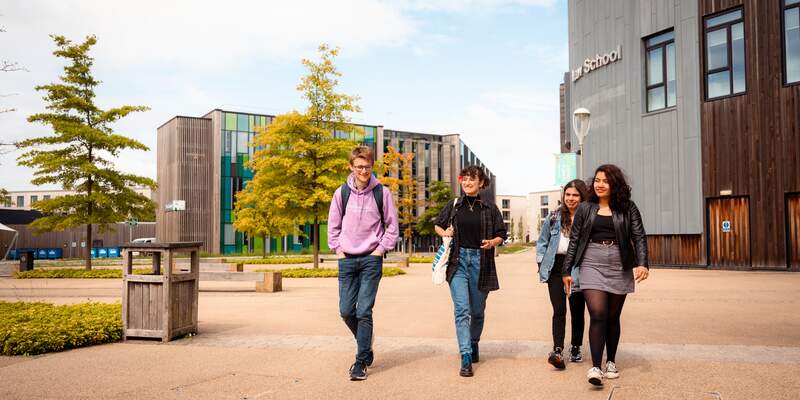
- Do you have a similar budget to the people you are wanting to rent with?
- Do you want to live with the people you currently live with, new friends through social groups, or maybe your course friends?
- Are you and your housemates on the same course dates, so your private property matches all of your University timelines? This tends to be from summer to summer.
How to find housemates
We host many housing talks and housemate finder events through the Colleges and across campus during the academic year. There are also Facebook groups that match students either looking for a group to live with, or a group that has a spare room they wish to rent out to an individual student who is still looking for a room.
- Student Accommodation in YORK
- Housemate Hunting York U.K.
- York Student Accommodation: Find A Flatmate, Flats, Rooms
These Facebook groups are not University managed groups so when checking through adverts it is advisable to be vigilant before paying any money upfront for a room / property.

Signing a tenancy agreement
- You should ensure that you always view your contract and carefully read over it before signing and transferring any money to the landlord or letting agent.
- To help you read through your tenancy agreement and make sure it’s right for you, you can use our helpful Tenancy agreement checking guide (PDF
 , 341kb).
, 341kb). - Remember, your contract is legally binding.
- An individual tenancy agreement is between you and the property owner
- A joint tenancy agreement is between you, your housemates and the property owner.
- Once you have signed your contract, you cannot give up the tenancy without the landlord's permission. You should not take over the tenancy agreement of another student without written consent from the landlord.
- Once you receive your tenancy agreement, they may also request housing references and information about your guarantor.
- If you have been living off campus previously, or you are currently living on campus, you can ask for a landlord reference from either your landlord or the accommodation team on campus.
Success at York Toolkit

Are you looking for motivation? Feeling stressed? Dealing with a setback? Not sure how to think about your future? Use our Success at York Toolkit to develop skills and motivation to ensure you get the most out of your time at York.
Frequently asked questions
Have a browse through the following frequently asked questions and answers for further guidance.
Do I need a rent guarantor?
We’ve officially partnered with Housing Hand, which means University of York students who do not have a UK guarantor can use their service at a discounted rate upon successful application. Use the unique referral link below to access the 50% discount.
Can I live by myself?
Yes you can live by yourself but this can sometimes be a little more expensive. You could look at private sector housing for one bedroom flats or houses, or there are many studio options in purpose built student accommodation where all your amenities including a kitchen, living room, bedroom and ensuite bathroom are in one room with bills included within the rent.
What happens to my deposit?
If you pay an advanced payment when booking your accommodation, this will be deducted from your first rent payment. If you pay a security deposit, this secures your accommodation booking and once you move into the property it converts into a damage deposit. This will then help cover any costs for broken or damaged items at the end of your tenancy if applicable, otherwise the full / remaining amount will be returned to you once you move out. The timeline of this and where the deposit is held will be written into your tenancy agreement.
Am I financially responsible for my housemates?
If you are on an individual tenancy, you are only responsible to pay for your own rent. However if you are on a joint tenancy, or anyone else is named on your contract, then anyone named is responsible for the payment. Therefore if one person refuses to pay, everyone in the property named on the contract must cover the owed amount. Therefore it is really important to ensure you all have trusted guarantors and people you wish to rent with. If in any doubt, always check your tenancy agreement.
Do I need to pay council tax?
If you are a full-time registered student, you are exempt from paying council tax. This is not automatic and you will need to apply for a council tax exemption so you don’t receive a council tax bill. Even if you are living in a shared house, you will all need to individually apply to be exempt. You can find out further information on the council tax exemptions webpage.
Where can I find short term accommodation?
If you are a full-time registered student looking for short-term accommodation, you can contact the accommodation team on campus to see if they have any rooms available during the academic year, or if they are offering accommodation during the summer period. Other short term accommodation can be found on sites such as Rightmove, Airbnb, Cozycozy, Hostelworld.
Are my utility bills included in my rent?
Most purpose-built student accommodation (PBSAs) and some letting agents will offer bills included within the rent, however it is more common for shared private houses to not have bills included. You will need to check the accommodation advert and your tenancy agreement to see if you have to pay bills separately.
Do I need a TV licence?
You will need to pay for a tv licence if you watch any television channels such as the BBC, ITV, Channel 4 or international channels. This also includes live TV on streaming services such as YouTube, Amazon Prime Video and BBC iPlayer. You can find out further information on whether you need to pay for a TV licence or not and how to apply via the TV Licensing website.
Will I lose my college membership if I live off campus?
No, even if you live off campus, you will remain a member of your, or a College.
I am looking for couples accommodation, what options do I have?
If you are looking to live in couples accommodation, there are a few options. You can live on campus, where only one of you has to be a fully registered student. To live in student purpose-built accommodation or a student letting agent property, you will both need to be fully registered students. Otherwise you will need to seek accommodation in the normal public private sector.
I am looking for family housing, what options do I have?
There are properties on campus to house families, the university also works with 54 North Homes to provide even more family accommodation. You can find out more on the University's family accommodation web page. Otherwise for family housing, you will need to look in the normal public private sector.
Still have questions?
Contact our Support and Advice Team
A first point of contact for advice on issues including financial support and money management, housing advice, academic progress issues and support for under-represented student groups.
You can self-refer to our Support and Advice team by completing the student self-referral form. A member of our team will contact you by email as soon as possible and if you are offered an appointment, this can be conducted by telephone, video call or in-person.
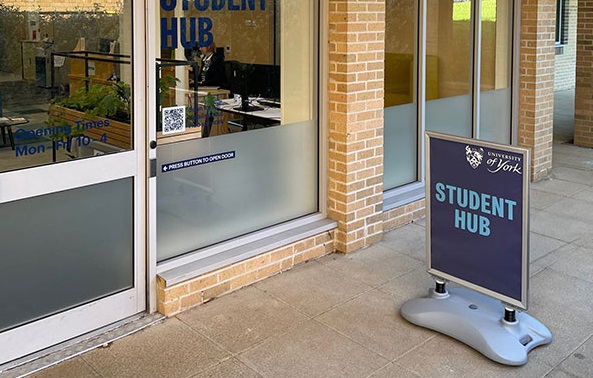
Contact us
Office hours: Monday to Friday, 10am to 4pm (excluding public holidays)
Student Hub

